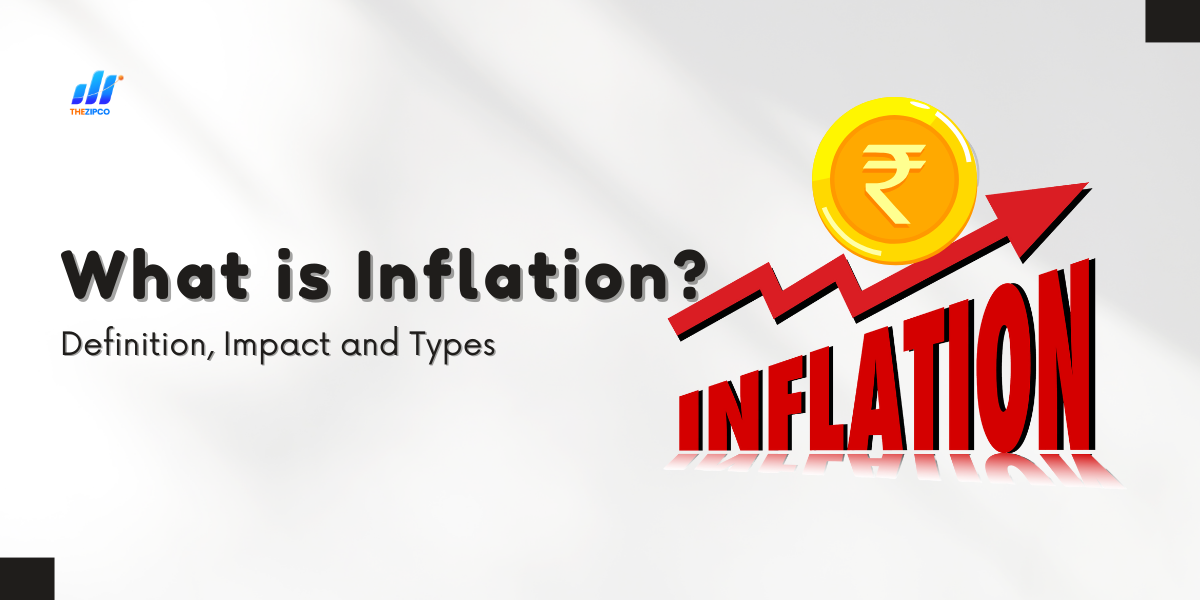Inflation affects everyone, extending beyond higher prices to impact investment returns. Understanding its dynamics is crucial for assessing investment suitability based on individual needs.
What is Inflation?
Inflation is defined as the rate at which prices of goods and services increase over time, reducing the purchasing power of money. It applies broadly to overall price rises and specifically to categories like food, fuel, medicines, and real estate. Inflation rates are measured monthly, quarterly, or annually to track these increases.
Impact of Inflation on Investment and Savings
As an investor, understanding the impact of inflation on various types of investments is crucial:
- Fixed Income Investments: Returns from fixed-income assets like bonds and deposits decrease with inflation due to their fixed returns until maturity, negatively correlating with inflation. Debt-oriented instruments are similarly affected.
- Market Linked Investments: Equities and equity mutual funds tend to perform well against inflation over the long-term, as they often see increased returns during inflationary periods.
- Commodities: Assets like gold typically maintain a positive correlation with inflation, historically serving as a hedge against it, though generally less effective than equities in growing economies.
- Real Estate: Real estate values usually appreciate with inflation, yet this correlation is tempered by factors like government policies and demand fluctuations, impacting returns.
Investors should strategically allocate across these asset classes to achieve returns that outpace inflation while managing overall investment volatility.
Types of Inflations
Inflation manifests in various forms, each defined by its underlying causes and growth rates:
- Cost-push: Increased production costs elevate prices, driven by factors like labor and raw material expenses.
- Demand-pull: Surging demand surpasses current production capacity, prompting price hikes.
- Deflation: Negative inflation leads to decreased prices across goods and services.
- Disinflation: A slowdown in the rate of price increases, though not negative.
- Reflation: Government intervention to stimulate the economy, often through increased money supply or spending.
- Creeping: Mild inflation with annual price rises under 3%.
- Walking (trotting): Gradual annual price increases with low inflation rates.
- Running (galloping): Steep inflation rates exceeding 10% annually.
- Hyperinflation: Extraordinary inflation rates exceeding 1,000% annually.
- Stagflation: High inflation coinciding with economic recession.
How Does Inflations Affect Your Investments?
The impact of inflation varies across different types of investments. For instance, assets with fixed interest payouts annually, such as traditional bonds, treasury bills, or bank CDs, may see reduced real returns due to inflation.
Equities’ returns can be influenced by inflation in complex ways. Inflation may signify a strong economy, boosting business sales and stock values, but it can also increase operational costs like labor and raw materials, affecting profitability.
Historically, commodities like gold have performed well during high inflation periods, making them a potential hedge against inflation risk in a portfolio. Additionally, certain investments are indexed to inflation, ensuring their income adjusts with inflation changes, seen in floating rate bonds and some annuities for an added cost.
How to Choose Investments that Beat Inflation
A key strategy for consumers to combat inflation is investing in assets that offer returns higher than the inflation rate. Diversified index funds and equity investments are often recommended by experts for long-term wealth growth. By diversifying across various investment options in India, you can mitigate inflation risk and optimize asset allocation.
Starting investments early and maintaining a long-term perspective enhances the benefits of compounding returns, where reinvested gains generate further earnings over time. While market movements are unpredictable, investing strategically in specific assets for the long haul remains one of the most effective ways to counter inflation.
Conclusion
Regardless of global events, inflation remains a persistent concern. Making prudent financial decisions ensures the safety and growth of one’s money. Without such foresight, inflation can erode savings. Understanding inflation is crucial in today’s financial landscape.
Keep reading and supporting thezipco!


